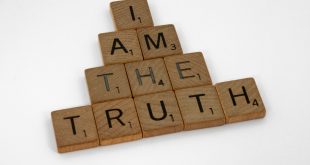Validation is one of the most fundamental human needs. From a child looking for a parent’s praise to an employee seeking recognition at work, validation shapes our sense of identity, worth, and belonging. In today’s digital world, this craving has grown stronger, fueled by social media likes, comments, and shares. But why do humans need validation so deeply, and how does it influence our psychology? At Bloggers Trend, we explore the roots of this behavior, its benefits and drawbacks, and how to strike a healthy balance between external approval and inner confidence.
The Evolutionary Roots of Validation
To understand validation, we must go back to our ancestors. In early human societies, survival depended on belonging to a group. Acceptance meant food, shelter, and protection. Rejection often meant danger or even death. Over generations, the human brain evolved to associate validation with safety and security.
This survival instinct is still with us today. When we are praised or accepted, our brain releases dopamine, the “feel-good” neurotransmitter, reinforcing our behavior. Conversely, social rejection triggers the same pain pathways as physical injury, which is why being ignored or criticized can hurt so deeply.
Validation and Self-Esteem
Validation acts as feedback for our identity. When others acknowledge our efforts, we feel a boost in self-esteem. Psychologists suggest that self-esteem is built not only on self-perception but also on how others view us.
-
Positive validation strengthens confidence, encourages growth, and motivates people to take on challenges.
-
Lack of validation can lead to self-doubt, insecurity, and feelings of worthlessness.
For example, a student who consistently receives recognition for hard work develops a strong sense of competence. On the other hand, a student whose efforts are ignored may internalize the belief that they are not capable, regardless of their abilities.
The Role of Social Media
In the digital era, validation has taken on new forms. Social media platforms thrive on attention and approval. A simple like, heart, or share can trigger a dopamine rush similar to receiving praise in real life.
However, this comes with consequences:
-
Instant gratification: Users become conditioned to seek immediate approval.
-
Comparison trap: Constantly seeing others’ curated lives can reduce self-worth.
-
Validation dependency: Self-esteem becomes tied to digital engagement.
For many, logging in to check “who liked my post” has become a modern-day version of asking, “Am I good enough?”
Healthy vs. Unhealthy Validation
Not all validation is harmful. In fact, it plays a critical role in human relationships. The key lies in balance.
✅ Healthy Validation
-
Encouragement from friends and mentors
-
Constructive feedback at school or work
-
Mutual respect in relationships
-
Recognition of genuine effort
Healthy validation builds resilience and reinforces positive behavior.
❌ Unhealthy Validation
-
Constantly seeking approval to feel worthy
-
Basing self-worth entirely on others’ opinions
-
Changing identity to please others
-
Addiction to likes and online engagement
Unhealthy validation often leads to anxiety, stress, and dependency on external sources for happiness.
Why We Crave Validation So Intensely
Several psychological theories explain this craving:
-
Maslow’s Hierarchy of Needs – After basic needs like food and safety, humans naturally seek belonging and esteem. Validation fulfills these needs.
-
Attachment Theory – Our early childhood experiences shape how we seek validation. Children who grow up with secure attachment are more self-assured, while those with inconsistent validation often crave approval in adulthood.
-
Social Identity Theory – People define themselves by the groups they belong to. Validation reinforces that group identity and provides meaning.
Self-Validation: The Missing Piece
Relying solely on others for validation creates instability. True confidence comes from self-validation — the ability to acknowledge and affirm your own worth.
Ways to practice self-validation include:
-
Journaling: Writing about accomplishments and feelings without judgment.
-
Positive affirmations: Replacing negative self-talk with empowering statements.
-
Mindfulness: Staying present and recognizing emotions without needing external approval.
-
Celebrating small wins: Giving yourself credit for progress, not just perfection.
When individuals learn to validate themselves, external validation becomes a bonus rather than a necessity.
Striking the Balance
Validation is not something to eliminate — it’s part of being human. The goal is balance:
-
Seek feedback and encouragement, but don’t let it define your worth.
-
Enjoy praise, but also learn to stand firm in your values.
-
Use social media positively without becoming dependent on it.
At Bloggers Trend, we emphasize that awareness is the first step. Recognizing the difference between healthy and unhealthy validation allows you to navigate relationships and digital spaces more consciously.
Conclusion
Humans crave validation because it fulfills deep-rooted psychological and evolutionary needs. While healthy validation can boost confidence and strengthen relationships, over-dependence can harm mental health. In our hyperconnected world, learning self-validation is more important than ever. At Bloggers Trend, we encourage readers to embrace both external recognition and inner confidence, building a foundation for lasting self-worth.
FAQs
Q1: Is craving validation a weakness?
No, it is a natural human need. Problems arise only when it becomes the sole source of self-worth.
Q2: How can I stop relying too much on validation from others?
Practice self-reflection, set personal goals, and learn to celebrate achievements without external approval.
Q3: Does social media increase the need for validation?
Yes, because it provides instant feedback, creating dependency on likes and comments.
Q4: Can validation improve mental health?
Healthy validation boosts self-esteem and reduces stress. However, unhealthy validation can lead to anxiety and insecurity.
Q5: What’s the difference between validation and praise?
Validation affirms feelings and identity, while praise usually acknowledges actions or results. Both are important but must be balanced.
 Bloggers Trend Keeping You Up To Date
Bloggers Trend Keeping You Up To Date




